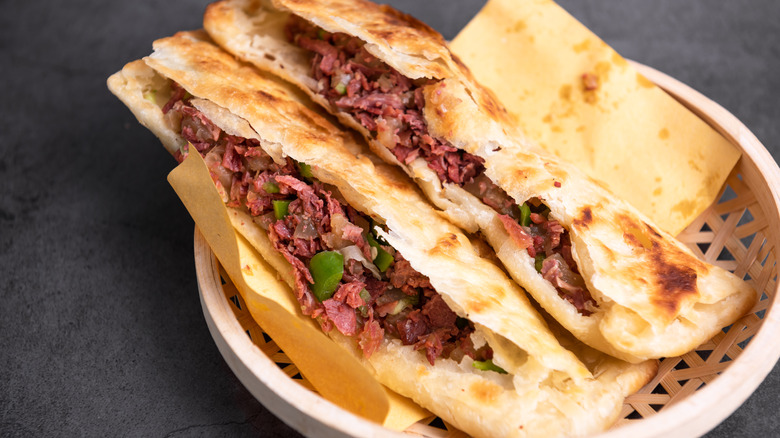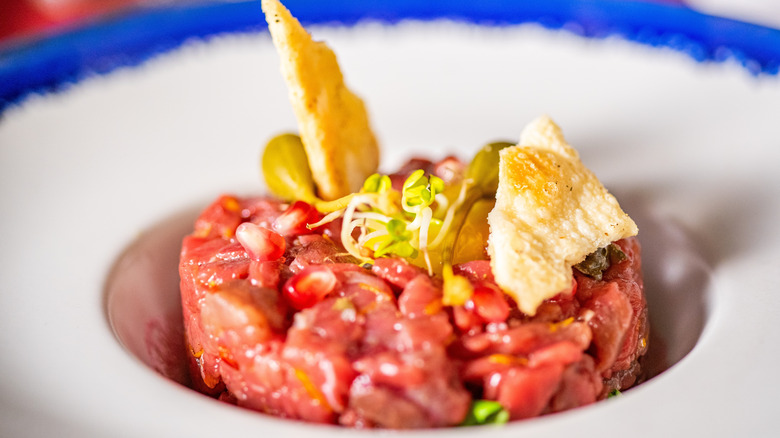The Cloudy Origins Of Donkey Burgers
If someone asks if you want a donkey burger, you might envision a patty smothered in Guy Fieri's donkey sauce, which is a garlicky mayo-mustard combo. However, if you live in Michigan, that likely means you'll be dining at Dancing Donkey Burgers in Traverse City or Brayz Hamburgers in Hazel Park. If you've traveled to China, however, the burger may literally be made with donkey meat. This meat has been popular in northern China for decades — if not centuries.
According to one story, people started eating donkey meat in the 18th century after it was served to the Qianlong Emperor. Other sources would have it that the meat didn't catch on until the railroads came to Hebei province, and donkeys were no longer needed for transportation. The story favored by the Chinese government, however, holds that donkey meat was adopted by farmers in the newly founded People's Republic of China (which dates to 1949) because it was cheap and long-lasting.
Two cities in Hebei province — Hejian and Baoding — both claim to be the birthplace of the donkey burger. In the former, the burgers are served cold, and the bread is rectangular, while the latter prefers warm burgers on round bread. Neither sandwich is exactly a burger in the Western sense, as they're not made from ground meat, nor do they come on a bun smothered in ketchup. Instead, the donkey meat, which is something Andrew Zimmern has described as lean and beefy with a lamb-like texture, is typically stewed, shredded, and stuffed in a bread pocket with chiles and cilantro.
Countries besides China have their own donkey delicacies
Why don't we eat donkeys here in the U.S.? Perhaps it's because they're more horse-adjacent than cows, so even though donkey dressage isn't a thing, the species is still considered to be more companion animal than potential food source. There may also be legal issues — when Amazon was found to be selling supplements containing donkey meat, a California law prohibiting the sale of equine meat took them off the market in that state. While equine meat may be hard to find in the U.S., this controversial protein source is much more acceptable in Europe.
In Verona, Italy, one of the local delicacies is egg noodles served with a donkey sauce called ragu de musso, while Padua guesthouse La Posa degli Agri has featured donkey tartare on its menu. Yet another Italian dish, stracotto d'asino, consists of donkey meat braised in red wine. In France, saucisson d'âne (donkey sausage) is sold in the market, while in Serbia, you can find kobasica sausage with donkey meat. Additionally, the world's most expensive cheese is made from donkey milk.
Before you hee-haw at the idea of eating donkey, consider the health benefits. It has less fat but just as much protein as beef and is also a good source of calcium and iron. Who knows, you may get a chance to try the meat for yourself in the not-too-distant future since several Chinese entrepreneurs are looking to make donkey burgers a global phenomenon.

